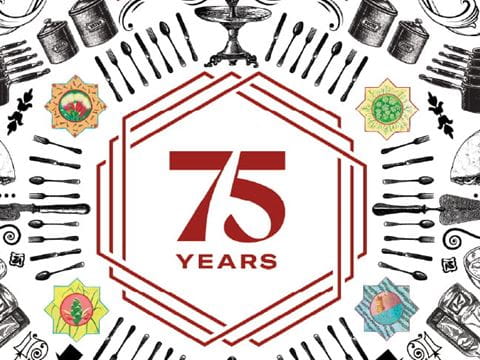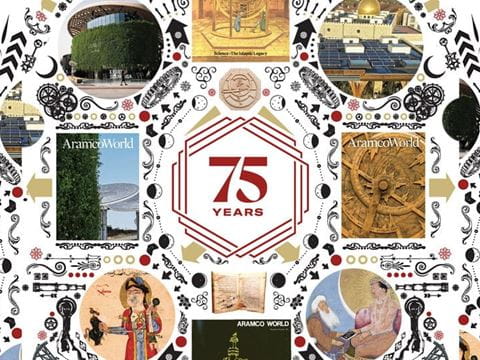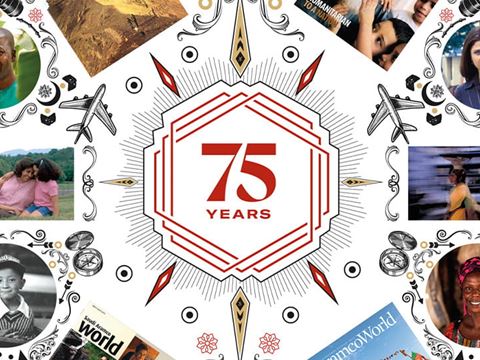
Egyptology Today: A Conversation With Egyptian Archeologist Monica Hanna
Until recently, Egyptian archeological sites were filled with foreign archeologists excavating prized treasures from the country’s ancient past.
Until recently, Egyptian archeological sites were filled with foreign archeologists excavating prized treasures from the country’s ancient past. Apart from laborers, one would rarely find Egyptians on these sites, says Monica Hanna, an Egyptian archeologist who is endeavoring to have her country’s archeology be led and defined by Egyptians themselves. In her latest book, The Future of Egyptology, Hanna guides readers on a journey through the study of ancient Egypt, a discipline that began during the second half of the 19th century. She says that since its inception, Egyptology has been shaped by colonialism, causing some contemporary Egyptians to disengage with their history. Hanna cites the famous Nefertiti Bust, for whose return from Berlin she has long campaigned, and the 2013 looting of the Malawi Museum in Upper Egypt, claiming that increased education of Egyptian history in schools would have lessened the probability of such an incident.
As a child growing up in Cairo, Hanna loved museums and was fascinated by ancient Egyptian culture and history. When she began studying engineering in college, Hanna’s mother saw that her real passion lay in studying the ancient civilization of her home country and encouraged her daughter to change her career path.
Hanna completed her undergraduate studies in Egyptology and archeological chemistry at the American University in Cairo in 2004. She later completed her doctorate at the University of Pisa in Italy and is now the founding dean of the College of Archaeology and Cultural Heritage at the Arab Academy for Science, Technology and Maritime Transport in Aswan, Egypt. She is also working at the American University of Iraq-Baghdad to develop a program on heritage studies and conservation as part of her current interest in addressing the lack of education in archeological studies across the Middle East.
AramcoWorld spoke with Hanna about her new book.

Archeologist Monica Hanna poses at the Pyramid of Djoserin Saqqara, the oldest-known ancient Egyptian stone structure. Through her new book, Hanna seeks to engage modern Egyptians in the management of their heritage. (Courtesy of Monica Hanna.)
In your new book, The Future of Egyptology, how do you connect the ancient world with the Egypt and Egyptians of today?
Egyptology is a discipline that started in Egypt—a colonial discipline made by the West during the 19th century when figures like Jean-François Champollion began deciphering the hieroglyphs in 1822. Ancient Egypt and Egyptology feels like a discipline that is trapped in a glass bottle catered to the very elite. Everyday people on the Egyptian street feel very far from it. This is how I recount the origins of Egyptology in academia. Egyptology remained an area study in the field of archeology until it evolved more recently.
Right now, Egyptology is what we see in the media—a hyped-up, adventurous version of the depth of knowledge that can be acquired through excavations and knowledge of ancient Egyptian sites. We have objects that are still being sold on the black market from illicit looting. We have big international museums buying illicit objects and looting of colonial heritage that began 200 years ago and continues today. We need to change this.
What is the future of Egyptology, and how do you achieve it?
The future of Egyptology entails a better engagement with modern Egyptian communities. People need to be involved in the current management of their heritage. They need to have a say in how their archeological sites are studied and managed. I want communities across Egypt to be involved in the excavations. I’ve worked on excavations where workmen had no clue about the history they were excavating.
An increase in Egyptians engaging in Egyptology through accessible education in archeology, museums and excavations will result in more hope for the future, inspiration and the economic and social potential of tourism based in Egyptian heritage.
Why are archeology and Egyptology, for that matter, important not just to Egypt and the Arab world but to all of humanity?
Museums and archeological sites are just as important as a hospital, a school or a highway because they create space for knowledge, production, negotiation and learning of the past.
We want to build bridges and highways for infrastructure, while an archeological site or a museum is a form of social infrastructure. It is in this space where people can discuss heritage, rethink their past and better understand the present. As much as we think that a bridge is important to connect two sides of a place, the museum is also important to connect the past, the present and the future.
What is the educational landscape like for the study of archeology in Egypt?
There is not a solid school for Egyptology in Egypt—something I discuss in my book in the chapter “The Road Not Taken,” writing about how we as Egyptians have been trying to play catch-up with the West because Egyptology was initially a European discipline made for Europeans. We have been trying to catch up, but we still, unfortunately, get faced with post-colonial challenges.
What are some of your latest excavations? What are you working on now?
I am not presently excavating but am planning a documentation project for the Temple of El-Dakka. … I am also currently working at the American University of Iraq-Baghdad to develop a program on heritage studies and conservation and working on two more books. One is on the archival research I did on the restitution of the bust of Nefertiti, and the other one is on a critical history of Egyptology.
I think that excavations are wonderful and help us understand the past, but we have so much heritage that has already been uncovered but is not being managed and conserved properly. I am more concerned about this heritage than the heritage that is protected within the earth. If I have a chance, I would like to do more site management and public archeology than excavations.
What regional efforts toward greater archeological work are taking place?
Saudi Arabia is doing excellent work in the field of archeology. Through archeology they are revisiting their heritage. They are investing in huge reconstructions, especially AlUla and historical Jeddah. Oman is another country to watch.
You have recently been working in Iraq. What is the state of archeology there?
The archeology there needs more conservation and site management. With many international teams working in the country, my focus will be on building capacities within the Iraqi community in such important fields.
Do you believe Egypt is inspiring other countries in their archeological efforts?
I think countries across the Arab world, and in many African countries, are looking to Egypt for the construction of museums and for heritage management. I think Egypt has enough capacity, especially in conservation.
Why is understanding our past through archeology so important to humankind?
We are not born in a vacuum. We are multilayers of history and multilayers of heritage. Feeling grounded in that past, not in a superficial nationalist way, is also good for social cohesion. When you can envision where you come from, then you can envision where you want to go.
This interview has been lightly edited for length and clarity.
You may also be interested in...

AramcoWorld Explores Universal Food and Cross-Cultural Identity
Food
History

How Ancient Knowledge Shaped Modern Technology
History
Science & Nature
Part 3 of our series celebrating AramcoWorld’s 75th anniversary highlights the magazine’s emphasis on experts and institutions that push the boundaries of present-day knowledge while paying homage to historical figures and writings that paved their way.
AramcoWorld: 75 Years of Visual Storytelling Through Photography
Arts
History
Part 2 of our series celebrating AramcoWorld’s 75th anniversary this year highlights “visual vagabonding”—the magazine’s expanded use of vibrant images over the decades to fulfill the mission of cultural connection.